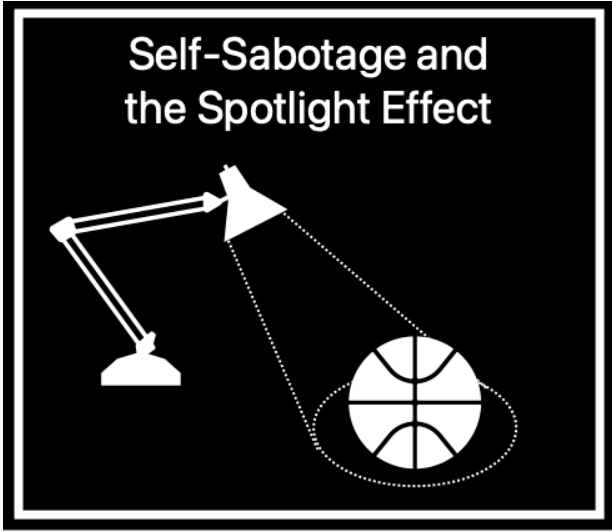Self-Sabotage and the Spotlight Effect | Vol. 57
“Be who you are and say what you feel, because those who mind don’t matter and those who matter don’t mind.”
– Unknown
Wilt Chamberlain was one of the all-time greatest NBA players of all time. He holds many all-time records, including the most points per game in a season (50.3), most points scored in a game (100), and most free throws made in a game (28). All three records were set in 1962 and two on the same evening. In his legendary March 2, 1962 game Chamberlain scored 100 points, including 28 of 32 free throws. Here’s the thing: he was a horrible free-throw shooter, making just 51% of his shots throughout his career.
Like many big men, the sound most often heard after one of his free throws was “clang,” not “swish.” But for that one season 1962, he shot much better. He adopted an unorthodox but effective technique. He shot underhand or “Granny Style.” After the season, Chamberlain went back to shooting traditional free throws, missing almost half the time. If he’d kept shooting underhand, he could have scored another 1,346 points and finished ahead of Michael Jordan on the all-time scoring list.
So why do otherwise successful people make horrible professional decisions? Because they care too much about what others think. Chamberlain knew going back to traditional free throws was a bad decision. He wrote in his autobiography, “I felt silly … shooting underhanded. I know I was wrong… I just couldn’t do it.” He wanted to be liked more than he wanted to be right.

The irony is people don’t think about us nearly as much as we imagine they do. Psychologists point to the “Spotlight Effect” to explain this phenomenon. We tend to live like we’re on a perpetual stage in a darkened theater with a spotlight tracking our every move. But everyone is actually wandering around in their own spotlight. Finance author Morgan Housel once described something similar, “When you see someone driving a nice car, you probably don’t think, ‘Wow, that person is cool.’ Instead, you think, ‘Wow, if I had that car people would think I’m cool.’ Do you see the irony? No one cares about the guy in the car.” We have to get out of our own heads and focus on the goal.
Any commitment to be our best comes with a parallel pledge to endure the painful process of learning new things. That’s what we call “Moving from E to P” in The ONE Thing. The “E” stands for “entrepreneurial.” It’s how we approach things naturally and it comes with its own ceiling of achievement. To move past that we must be “purposeful” and adopt the best models for our actions, even if those models are inherently uncomfortable at first. Even if they make us look “silly.”
In the beginning, fumbling like an awkward teenager doesn’t stop us. This self-consciousness hits hardest after we accomplish a certain level of success. We don’t want to feel or look like a beginner again. But to pursue our potential means there is always new learning ahead. That’s just what big success looks like. There is no auto-pilot mode.
The good news is that persistence does pay off. Breakthroughs follow breakdowns when we ignore the critics and press on.
Lau Tzu wrote, “Care about what other people think and you will always be their prisoner.” Preach, Tzu! We can’t let our potential be held captive by the expectations of others.
One question to ponder in your thinking time: What would I do differently if I really didn’t care what other people thought?
Make an Impact!
Jay Papasan
Co-author of The One Thing & The Millionaire Real Estate Agent

Leave a Reply
You must be logged in to post a comment.